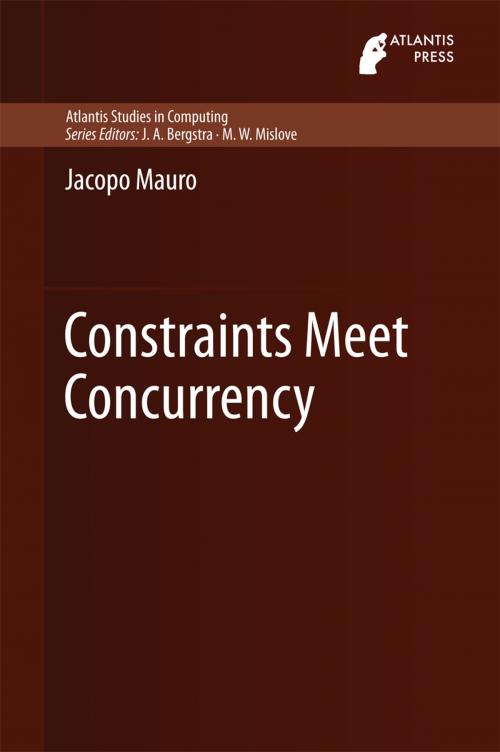Constraints Meet Concurrency
Nonfiction, Science & Nature, Mathematics, Logic, Computers, Programming, Programming Languages, General Computing| Author: | Jacopo Mauro | ISBN: | 9789462390676 |
| Publisher: | Atlantis Press | Publication: | February 11, 2014 |
| Imprint: | Atlantis Press | Language: | English |
| Author: | Jacopo Mauro |
| ISBN: | 9789462390676 |
| Publisher: | Atlantis Press |
| Publication: | February 11, 2014 |
| Imprint: | Atlantis Press |
| Language: | English |
This book describes the benefits that emerge when the fields of constraint programming and concurrency meet. On the one hand, constraints can be used in concurrency theory to increase the conciseness and the expressive power of concurrent languages from a pragmatic point of view. On the other hand, problems modeled by using constraints can be solved faster and more efficiently using a concurrent system. Both directions are explored providing two separate lines of development. Firstly the expressive power of a concurrent language is studied, namely Constraint Handling Rules, that supports constraints as a primitive construct. The features of this language which make it Turing powerful are shown. Then a framework is proposed to solve constraint problems that is intended to be deployed on a concurrent system. For the development of this framework the concurrent language Jolie following the Service Oriented paradigm is used. Based on this experience, an extension to Service Oriented Languages is also proposed in order to overcome some of their limitations and to improve the development of concurrent applications.
This book describes the benefits that emerge when the fields of constraint programming and concurrency meet. On the one hand, constraints can be used in concurrency theory to increase the conciseness and the expressive power of concurrent languages from a pragmatic point of view. On the other hand, problems modeled by using constraints can be solved faster and more efficiently using a concurrent system. Both directions are explored providing two separate lines of development. Firstly the expressive power of a concurrent language is studied, namely Constraint Handling Rules, that supports constraints as a primitive construct. The features of this language which make it Turing powerful are shown. Then a framework is proposed to solve constraint problems that is intended to be deployed on a concurrent system. For the development of this framework the concurrent language Jolie following the Service Oriented paradigm is used. Based on this experience, an extension to Service Oriented Languages is also proposed in order to overcome some of their limitations and to improve the development of concurrent applications.















